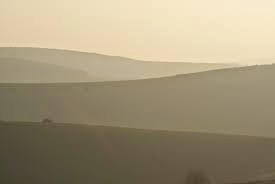
He opened the window and leaned against it.
The night outside was quiet.
She put the glass down by the bedside and lit a cigarette.
“If you don’t mind, I like to be paid in advance.”
He took out his wallet, counted out the money and put it by her side. She checked the amount and dropped it in her purse.
She looked around the room. Her gaze lingered on the rows of books on the shelf.
“You don’t look the type,” she remarked.
He stretched his arms behind on the window sill.
“What type?” he asked.
“The type who would pay money for women”.
He smiled as he said, “looks can be deceptive.”
She continued looking around the room.
“What do you do,” she asked, flipping the ash off the cigarette.
“I am on study leave,” he answered.
She took another drag.
“Leave from what?”
He looked at her quizzically.
“Why would you want to know that?”
She shrugged.
He folded his arms across his chest and crossed his legs.
The clock ticked on the table nearby.
“I am on leave from the army,” he replied.
She looked at him closely and pursed her lip. Then she picked up her glass and drank some more. She put down the glass carefully on the side table.
“You don’t look the army type.”
He smiled.
“What type do I look?”
She considered him, stretching her legs.
She was wearing one of those knee length embroidered cotton skirts that he liked. The fabric rested on her shapely legs.
She didn’t answer.
“Why don’t you sit down,” she said, after a while.
He pulled the cane chair and sat down on it next to the bed.
She picked up the TV remote and fiddled with it. Then she sat up straighter, tucking her legs under her.
A small silence fell.
It was broken by her asking, “are you married?’
He leaned back and scratched his chin.
“I was married, but separated now.”
She was quiet.
She studied her fingernails, “mind if I ask why?”
He rubbed his face.
“May be because she was very intelligent, highly qualified. I wasn’t offering her much”.
“She is doing well now,” he added casually.
It was quiet again.
Abruptly, she swung her legs off the bed and stood up.
“Mind if I see if there is anything to eat?”
“Help yourself,” he replied with a smile.
He heard the sound of the refrigerator door being opened. After a few minutes, she came back with a plate of green salad.
He got up and switched on the night lamp; turning off the main light. Then he went out and switched off the outside lights. When he came back, he found her nibbling on a tomato slice.
“You are right,” he said sitting down again.
“Right about what?” she asked laconically, still nibbling on the tomato slice.
“Well, not fully right; – but partially right. I am not the hired woman type.”
“Then why did you bring me?”
“To talk,” he answered.
She looked up at him but didn’t say anything.
“Its been sometime since I talked to someone, specially a woman.”
She looked him up and down and then went back to eating.
“I don’t think you would find it difficult to get a woman to talk to – without paying,” she remarked after sometime.
He didn’t say anything.
“You bring in women regularly? ………For talking as you say….,” she added with a little emphasis.
He laughed.
“You are the first one for whom I have paid.”
“Well I am flattered.”
She turned to look at him, putting the plate aside.
“And may I ask what made you give me this honour. I am an ordinary looking girl, aren’t I?” She lifted her eyebrows and smiled.
He rested his face on his palm and looked at her.
“You smile a lot.”
She inclined her face and the falling strands of her hair hid her expression.
“Did it surprise you that I am ….how do you put it…yes; … that I am a woman for hire?”
“Not really,” he answered.
“I don’t have anything against hired women”.
They are often better company,” he added.
She laughed, “Well, you seem to know a lot about hired ones, given that I am your first one!”
He smiled. “I have friends who have been around.”
She looked at him – made as if to say something; but didn’t.
Then she picked up the TV remote again and switched on the TV, toning the volume down, selecting a movie
“I am not a regular,” she said as she watched the movie.
“What?”
“I said, I am not a regular.”
She was still looking at the TV.
“I have a few customers who treat me well and are nice in their way.”
He shrugged.
“As I said, I don’t have anything against the oldest profession.”
He put his legs on the bed, stretching them.
Someone was firing a gun in the movie.
“Have you ever killed anyone??” she asked suddenly
His face changed. He didn’t answer.
“Sorry! At times I say stupid things……”
“I don’t think I should have asked that,” she said after a while.
He was looking at his hands.
“Its alright – maybe even a natural question to a soldier,” he said quietly.
He looked up at her, his eyes veiled now.
He thought of the elite counter strike group that he commanded. A blur of visions and memories passed in his mind.
He then smiled, as if ruefully.
“Killing is bad business,” he said.
He watched her slender fingers working the remote.
Suddenly she slapped her palms together and said in a grave voice, “bad business”.
“Bad business,” she repeated gravely.
He lifted his eyebrows, puzzled.
“What bad business?” he asked.
“See, I killed a mosquito! Bad business!”
He laughed and nodded, “point taken ma’am”.
She got up and walked around the room barefooted, picking up things here and there.
Then she sat down again and watched TV.
He went out of the room and washed his face and hands. He came back rubbing his face with a hand towel.
“You can use the bathroom if you want,” he told her.
“Were you ever afraid?” she asked abruptly.
“What?”
“I said…. were you ever afraid?”
“Afraid of what?”
“Afraid of dying, – getting killed in battle.”
He got up and picked a book, turning its pages.
His face was in shadows.
He sat down again.
“Some in the army put it this way,” he said, still playing with the pages.
“There are three types. First is what we call the A types – those who feel fear but often become more careful because of it. They make good fighters”.
“Then there are what we call D types. Not many of these. They don’t know much fear – they may do extra-ordinary in battle, but can blunder also.”
He paused.
“Then there are what we call Q types”.
“What’s a Q type?” she asked.
He looked at the floor, “Q type is difficult to kill; and – finds it easy to kill”.
“Why so?”
“Can’t really say; – maybe because they rely much on instinct. Instinct often finds a solution where none appears.”
She had switched off the TV and was looking at him. Their eyes held.
“What type are you?”
He smiled, “I don’t know.”
She looked long at him and then lay down on the bed.
“I am not a nice person. I can be a real pain; especially to those whom I like,” she said slowly looking at the ceiling; – and then turned on her side to watch him.
He laughed out aloud.
“You should laugh more. You look different when you do,” she said, her fingers tracing lines on the bed.
“Different?”
“You look much younger.”
He didn’t say anything.
“And you have nice eyes,” she went on.
He got up. “I’ll get dinner for you”, he said.
“I am not hungry. Sit down. Let’s talk some more – I am liking it.”
He sat down.
“Tell me; – what would you like to do when you leave the army,” she asked, cupping her face.
“I would like to be a lawyer,” he replied.
She burst out in tinkling laughter.
“Why do you laugh,” he asked.
“A lawyer with nice eyes! The thought made me laugh!”
He grinned.
Then he got up again. “Listen, its getting late. I’ll warm some dinner for us.”
He was away for some time, – selecting things from the refrigerator and taking his time in putting together what he hoped would be a presentable dinner.
When he came back in the room; she was sleeping – breathing evenly and deeply. He stood looking at her; then put a cover over her.
He went back to the kitchen and had his meal there. Then he went to the sitting room and went to sleep in the reclining chair.
Very early in the morning, he heard suppressed, subdued sounds. He pretended to be asleep. After sometime, he heard her passing out through the door.
When she had left; he got up and went inside the room.
On the side table lay a piece of paper.
Something was written on it in bold and capital.
It read, “ALL TALK AND NO PLAY MAKES JACK A DULL BOY!!”
Beneath it, there was something further in a neat flowing hand – “Q types are dangerous – the money is under the pillow….”











